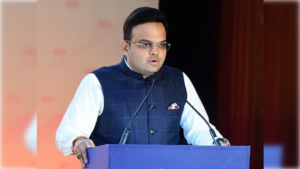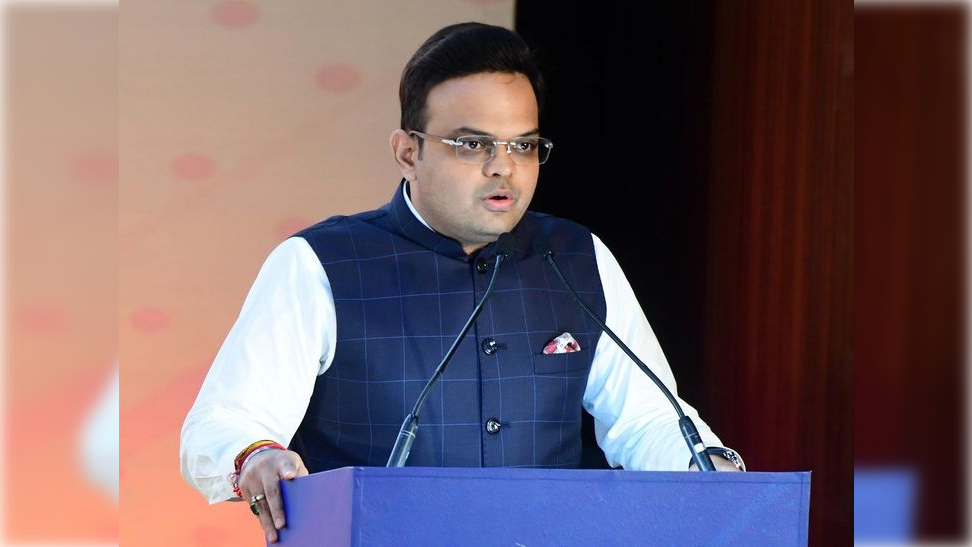
In the complex theatre of global cricket governance where influence is often inherited and continuity mistaken for progress, Jay Shah stands out as a reformer with intent. At just 35 he became the youngest ICC Chair in history, yet his career trajectory is built not on privilege but on a pattern of tangible achievements. His rise from the Gujarat Cricket Association to the BCCI, the Asian Cricket Council, and now the ICC represents a rare blend of operational acumen, strategic vision, and generational freshness.
Under Shah’s stewardship, the Board of Control for Cricket in India redefined the economics of sport. The IPL media rights auction of 2022 fetched over $6.2 billion, doubling the previous cycle’s value and cementing the league as the world’s second-richest sporting property by per-match valuation. This wasn’t just a financial triumph; it established the IPL as a benchmark for franchise sports worldwide.
He also oversaw the landmark central contract revision for women cricketers, ensuring pay parity with the men’s team for match fees – a first in Indian sport. The move wasn’t symbolic; it was structural, acknowledging women’s cricket as a professional equal.
Post-pandemic, when the domestic structure risked erosion, Shah prioritised its reboot. The Syed Mushtaq Ali and Vijay Hazare tournaments were restructured to feed into IPL scouting. He also spearheaded the expansion of the women’s domestic calendar, paving the way for the Women Premier League’s successful debut.
As President of the Asian Cricket Council, Shah successfully revived the Asia Cup as a commercially viable, multi-venue tournament and balanced competing national interests amid political sensitivities. He also restructured the ACC’s finances to provide guaranteed funding for associate members, expanding Asia’s cricket footprint to Nepal, Hong Kong, and the UAE.
Shah championed the creation of the WPL in 2023, securing broadcast and franchise bids worth nearly ₹4,700 crore combined. The league’s inaugural season drew record digital audiences and demonstrated the commercial viability of women’s cricket in India. It was arguably his most socially significant contribution to the game’s evolution.
His election as ICC Chair in 2024 was not merely procedural; it symbolised the sport’s acknowledgement of a younger, commercially astute generation of administrators. His stated focus areas – technology integration, calendar reform, and geographic expansion suggest a forward-leaning vision rooted in execution, not rhetoric.
Unlike many predecessors known for eloquent speeches but slow reform, Shah’s identity is built on deliverables: revenue growth, player welfare, gender parity, and regional balance. His track record speaks in KPIs, not platitudes. Shah represents the first generation of cricket administrators fluent in both traditional cricket culture and digital-age fandom. He understands data, distribution, and fan engagement as much as he understands dressing-room politics. Where earlier ICC chiefs either entrenched dominance era or overcorrected with idealism, Shah’s approach is hybrid. He recognises India’s commercial heft but pairs it with rhetoric of inclusion, particularly through Associate-nation development and Olympic alignment.
In tone and style, Shah mirrors the world’s most effective modern sports leaders – Thomas Bach’s structural reforms at the IOC, Gianni Infantino’s global expansion of football, and Adam Silver’s digital-first reinvention of the NBA. Yet, his challenge is sharper: cricket’s governance is fragmented, its formats in flux, and its economic centre overwhelmingly India-centric. His task is to use India’s gravity to stabilise, not distort, the game’s orbit.
Jay Shah’s next phase must move from reform to reinvention. The global cricket calendar needs re-engineering to protect Tests, rationalise franchise overlap, and carve equitable revenue flows. The women’s game demands its own independent commercial strategy. And the ICC itself requires a transparent, data-driven accountability framework that aligns members on performance, not politics. If he can achieve these, Shah’s identity will evolve from a powerful administrator into a transformative custodian – the architect of cricket’s next global era.
Follow Revsportz for latest sports news





